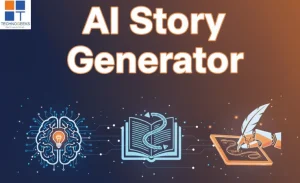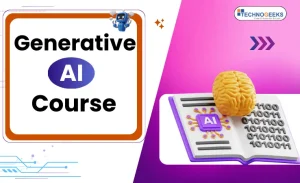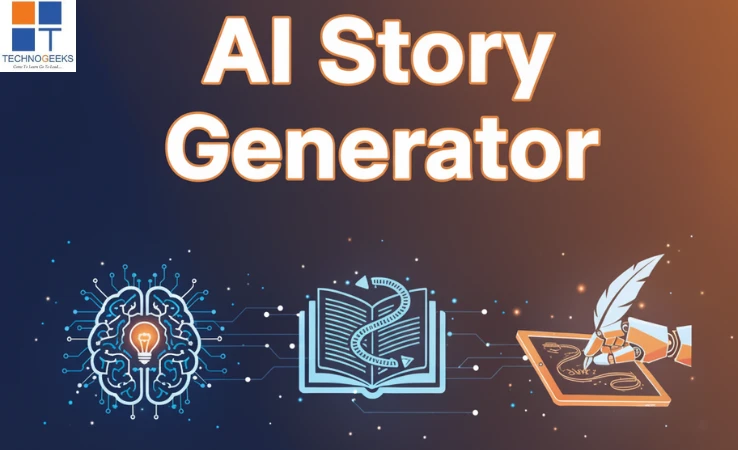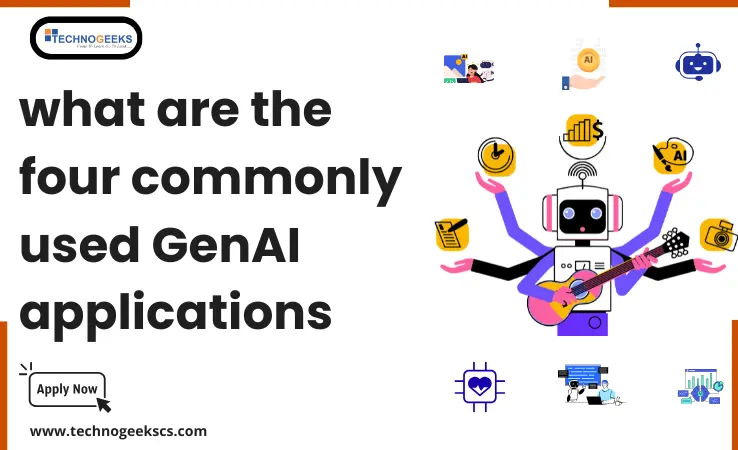Table of Contents
ToggleUses Of Java Programming
Java programming is a popular Object Oriented Programming Language (OOPs). According to the Tiobe index, Java will be the 4th most popular and widely used language after Python, C & C++ in 2023.
Also Read : What is Object Oriented Programming Language (OOPs)
So let’s come to the main point:
What is the use of Java?
Many developers are using Java to build enterprise application solutions and websites in the software industry. Learning Java programming in 2023 is highly beneficial because it is a widely popular programming language. Learning Java can offer various benefits, including career opportunities & the ability to work on a wide range of projects.
In this blog post, we will discuss the What is the use of Java in the software industry and also explain how to use the Java programming language to create various applications.
Applications Of Java
1. Web Applications
Java is widely used for developing web applications due to its robust and mature frameworks, such as Spring and JavaServer Faces (JSF). These Java based frameworks provide a wide range of features that make it easy to develop & maintain web applications, such as support for MVC architecture (MVC Full Form: Model View Controller). Additionally, they provide built-in security features, making sure the safety and protection of your web applications.
Java web application technologies are,
- Servlet API
- Message service API
- Mail API
- API for XML Processing
- Naming and directory interface
“Java is a platform-independent language Developed by James Gosling in the early 1990s.”
2. Mobile Applications
Java is also widely used to develop mobile applications, particularly Android devices. Android uses Java as the primary programming language for developing mobile applications.
Official Android app development IDE, supports development in Java. Additionally, the Android SDK includes a set of tools and APIs that make it easy to use Java to develop apps for Android devices. Java code can also be run on other mobile platforms using tools such as Xamarin and PhoneGap.
One more benefit of using Java programming in Mobile applications is JVM (JVM Full Form: Java Virtual Machine). It is simple for developers to reuse existing Java code & libraries when developing Android applications because the Android SDK comes with a JVM which allows Java code to run on Android devices.
Benefits of mobile applications using Java-like,
- Online and offline capacities
- Faster operations
- Time reducing
- Affordable and productive
- Personalize experience
- Security
To develop mobile applications in Java for Android, you must have the –
- Basic understanding of the Java programming language
- Android SDK and its tools
- Android framework and API
- UI and layout design
- Android app architecture
- Data storage and retrieval using SQLite
- How to use external libraries
- How to test & deploy your app to the Google Play Store
3. Desktop Applications
Using Java programming, we can develop desktop applications that run on various platforms for the creation of multimedia applications and graphical user interfaces (GUIs). The JavaFX framework offers a wide range of tools for creating desktop applications, and Java also includes a sizable ecosystem of tools and frameworks, including the Swing and AWT libraries.
Java Desktop Applications are widely used for software development, education, research, and business.
4. Enterprise Applications
Java is also used to create enterprise applications because it has many features that are suitable for creating scalable and reliable programmes. The JEE (JEE Full Form: Java Enterprise Edition) provides a set of standards & technologies for developing enterprise applications, including support for web services, security, and data access. Additionally, Java offers a wide range of tools & frameworks for creating enterprise applications, such as the Spring framework.
The java enterprise application is one of the leading programming platforms for enterprise java development. Java EE 8 is easier to develop modern and lightweight web services with the latest API addition.
Here are the types of enterprise application development where Java is used,
- Supply chain management systems help the business plan good delivery and analyze product demand.
- Enterprise management support system where several business processes, such as finance and accounting, are integrated.
- The customer relationships management system is divided into some customer analytical service apps that interact with the client.
5. Embedded Systems
Java Programming is used to develop embedded systems, which are computer systems integrated into other devices or products. The Java Platform, Java ME (Java ME Full Form: Java Micro Edition) provides a subset of the Java SE (Java SE Full Form: Java Standard Edition) used for developing embedded systems, including support for limited resources and small devices.
6. Big Data Applications
There are many programming languages used when it comes to big data technology. However, Java remains the go-to option. Its popularity and rich set of features make Java the preferred language for effectively managing and analyzing large amounts of data.
The following are some important uses of Java in big data applications:
- Data Streaming: Developers use Java to create data streaming applications by using technologies such as Kafka, Flink, and Akka Streams.
- NoSQL Databases: For developing applications developers use Java that interact with NoSQL databases such as MongoDB, Cassandra, and Hbase.
- Big Data Analytics: Developers actively use Java to develop big data analytics applications, leveraging technologies such as Mahout, RapidMiner, and Weka.
- Building scalable and distributed systems: Java provides the capability to build scalable and distributed systems, which is a necessity for big data processing.
Overall, Java Programming wide range of libraries and frameworks make it a suitable choice for big data application development.
Technogeeks is an excellent learning platform for Big Data Hadoop. Enroll to kickstart your journey as a Big Data developer.
7. Machine Learning Applications
Java is used in Machine Learning because of JVM.The JVM(JVM Full Form: Java Virtual Machine) is considered a valuable platform for machine learning because it offers the advantage of write once, run anywhere.
Some of the key uses of Java in machine learning include:
Developing machine learning models: Java is used to develop machine learning models using libraries such as Weka, Mahout, and Deeplearning4j. These java libraries offer many algorithms for classification, regression, clustering, and deep learning tasks.
Building custom libraries: Java can be used to build custom libraries and utilities used to preprocess data, such as data validation, data cleaning, and data transformation libraries.
Building scalable and distributed systems: Java provides the capability to build scalable and distributed systems, which is necessary for machine learning.
Natural Language Processing (NLP): Java is used to develop NLP applications using libraries such as OpenNLP, Apache UIMA, Stanford CoreNLP, etc., provide a wide range of algorithms for natural language processing tasks such as tokenization, part-of-speech tagging, and named entity recognition.
Also Read : What is NLP Full Form?
Computer Vision: Java Programming is used to develop computer vision applications using libraries like OpenCV, which provide various algorithms for tasks such as image processing, object detection, and image recognition.
Reinforcement Learning: Java is used to develop reinforcement learning applications using libraries like RL4J, which provides a wide range of algorithms for reinforcement learning tasks such as Q-learning, SARSA, and DQN.
8. IoT Applications
Java is also used in IoT to develop applications for connecting and managing IoT devices. It provides a lightweight and secure environment, making it a suitable choice for developing IoT applications. It also provides libraries and frameworks for developing IoT applications, such as the Java ME and Java SE Embedded platforms.
9. Gaming Applications
Java programming is a best choice for developing gaming applications because it offers flexibility and powerful features. With libraries like JavaFX and LWJGL( LWJGL Full Form: Light-weight Java Game Library), developers can create visually engaging graphics and animations in games. One advantage of using Java is its ability to run games on different platforms without needing major changes. This means that users can enjoy games on various devices and operating systems.
10. Cloud Applications
As we all know, cloud computing is a modern technology that enables remote access to IT services. While multiple programming languages can be used for cloud applications, such as Python, JavaScript, and C# but Many developers prefer Java due to its versatility and extensive community support.
Java Programming provides a wide range of tools specifically designed for cloud development, such as –
- Oracle Java Cloud Service
- CloudFoundry
- Google App Engine
- Openshift
- IBM Smart Cloud
- AWS SDK for Java
These tools help developers build and deploy cloud-based applications effectively.
Want To Start A Career In Cloud Computing?
Technogeeks is an excellent learning platform for Cloud Computing.
Conclusion –
I hope you get a better understanding of “What is the Use of Java?”. Also, how Java programming has a wide range of applications is discussed in this blog. Learning Java is highly beneficial for many reasons. It is a skill that is in demand across various industries and is considered future-proof.
If you are interested in learning Java, Technogeeks provides a comprehensive selection of courses. We have designed our courses to assist you in learning and excelling at Java programming, whether you are fresher or completely from a non-IT background, as well as experienced candidates.
Learn Core And Advanced Java With Technogeeks. Enroll to kickstart your journey as a Java developer.















